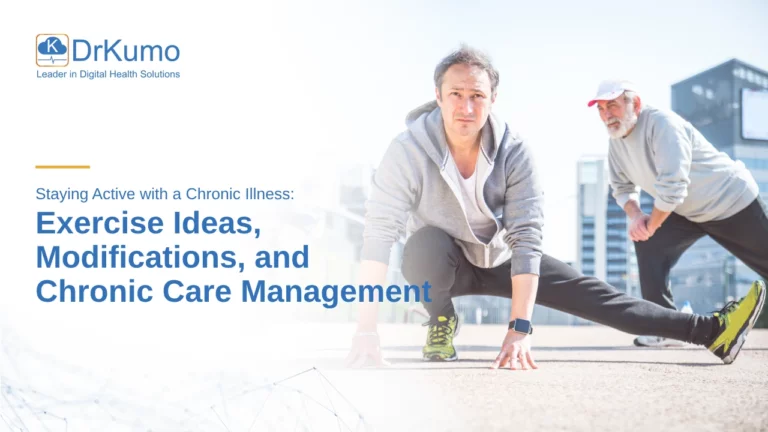High blood pressure, also known as hypertension, is a common condition that affects millions of people worldwide. If left untreated, it can lead to serious health complications such as heart disease, stroke, and kidney failure. One of the potential causes of high blood pressure is dehydration, which occurs when the body does not have enough water to function properly.
Dehydration is a common condition that can have a significant impact on overall health, including blood pressure. Many people may not realize that dehydration can cause high blood pressure, and that maintaining proper hydration levels is essential for regulating blood pressure and supporting overall health. In this article, we will explore how dehydration impact blood pressure, the importance of proper hydration for overall health, and how remote patient monitoring (RPM) technology can help regulate blood pressure through proper hydration.
How Does Dehydration Cause High Blood Pressure?
Dehydration can have a significant negative impact on blood pressure in several ways. Firstly, when the body is dehydrated, the blood vessels constrict, which increases their resistance to blood flow. When this occurs, the heart must work harder to pump blood, resulting in higher blood pressure. Additionally, when dehydrated, the body produces an increase in the hormone renin, which plays a role in regulating blood pressure. This enzyme controls the body’s fluid balance and blood pressure by managing the production of a hormone called angiotensin, which causes the blood vessels to constrict, which increases blood pressure.
Secondly, dehydration can cause an increase in stress hormones, such as adrenaline and cortisol, which contribute to an increase in blood pressure. These hormones are responsible for the “fight or flight” response in the body. When the body is under stress, catecholamines are released, which cause the blood vessels to constrict and increase blood pressure. The increase in adrenaline and cortisol also causes the heart to beat faster and harder, which also contributes to high blood pressure.
Lastly, dehydration can lead to thicker and “stickier” blood, which makes it harder for the heart to pump and can lead to an increase in blood pressure. Additionally, it can make it harder to control blood pressure as blood pressure medications rely on proper hydration to work effectively. To prevent dehydration and its negative effects on blood pressure, it is essential to drink enough fluids and stay hydrated.
Importance of Proper Hydration in Regulating Blood Pressure
Proper hydration is crucial in maintaining healthy blood pressure levels. When the body is dehydrated, it can lead to an increase in blood volume, which causes your blood pressure to rise. On the other hand, proper hydration can help regulate blood pressure and support overall health. To maintain proper hydration levels, it is important to drink enough water and avoid drinking too much dehydrating beverages such as alcohol and caffeine. Additionally, monitoring hydration levels can help to ensure blood pressure remains stable. One simple way to do this is to check the color of your urine. If it is clear or pale yellow, you are likely well-hydrated. If it is dark yellow or amber, you may be dehydrated and should drink more water immediately.
It is recommended to drink at least 8 glasses of water a day, and more if you are sweating or urinating frequently. Drinking water consistently throughout the day, rather than just when feeling thirsty, is also important because thirst is an indication that the body is already in a dehydrated state. The amount of water needed daily can vary depending on factors such as physical activity, medications, and overall health, so everyone should check with their healthcare provider for guidance.
In addition to drinking water, there are other ways to stay hydrated, such as eating fruits and vegetables with high water content. Watermelon and cucumbers are two examples. Drinking herbal teas, such as chamomile or mint, can also be a great way to stay hydrated. It’s important to note that there are other ways to stay hydrated and that it’s essential to monitor your hydration levels regularly to maintain healthy blood pressure levels.
Revolutionizing High Blood Pressure Management through DrKumo’s Remote Patient Monitoring
Remote patient monitoring (RPM) technology is a powerful tool that allows medical professionals to monitor patients’ vital signs remotely. DrKumo is a leading provider of RPM technology solutions, offering advanced technology that tracks and stores data on the patient’s health, as well as providing real-time alerts for abnormal readings.
One of the main benefits of RPM technology is the ability to monitor patients who may have difficulty visiting a medical facility regularly, such as those with chronic health conditions, mobility challenges, or those who live in remote areas. With DrKumo RPM technology, medical professionals can closely monitor patients’ vital signs, including blood pressure, heart rate, and hydration levels, and adjust their treatment plan as needed.
Additionally, RPM technology allows for the storage and analysis of patient data over time, which can help medical professionals detect trends and patterns that may indicate a problem. This can be particularly useful for patients at higher risk of dehydration and high blood pressure.
Overall, DrKumo RPM technology provides a comprehensive view of a patient’s health, allowing for early detection of issues and prompt action to prevent rise in blood pressure and other health concerns.
Conclusion
Dehydration can have a significant impact on overall health, including blood pressure. It is important to maintain proper hydration levels by drinking enough water and avoiding too many dehydrating beverages. Remote Patient Monitoring technology can also aid in regulating blood pressure through proper hydration. By monitoring hydration levels and staying hydrated, individuals can take control of their health and prevent high blood pressure.
Take control of your health by considering DrKumo RPM technology. Contact DrKumo now to learn more about how this technology can help you achieve and maintain optimal health.








